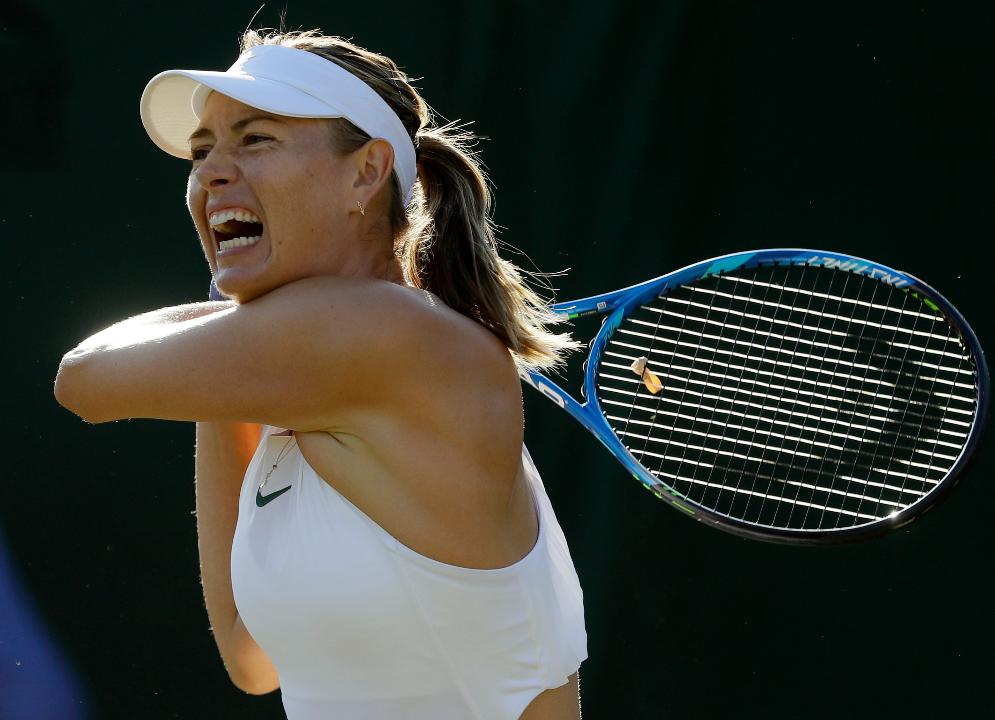Maria Sharapova on whether doping ban ‘tarnished’ her brand
Tennis superstar Maria Sharapova admits that her the doping ban 2016 made it her toughest year, but in the end the situation has only made her stronger.
“I think that it brought back fire and it makes me realize that if my body allows me to, there’s so much more that I still want to give to the sport,” Sharapova, who played this week in her second U.S. Open since the ban, told FOX Business.
She said her fans have also been extremely supportive since stepping back onto the court in 2017 and she doesn’t think her suspension tarnished her brand in any way.
“My fans have been incredible. The reception at the Grand Slams that I’ve competed at since my comeback have been really welcoming,” she said.
And, on the business and sponsorship front, Sharapova has been able to hold onto her 10-year, $70 million dollar deal with Nike and other ambassador deals with companies like Porsche, Evian, HEAD and NetJets.
Also, her candy brand, Sugarpova, which she launched in 2012, has reached new heights over the last year with major partnerships, including Hudson Group and SBE Hotels, putting her treats in more than 22 countries. Her $500,000 investment into the company, is paying off handsomely: It is expected to exceed $20 million in sales this year, according to Forbes.
However, news of the two-year ban, which was later reduced to 15 months, for taking a drug that was banned by the World Anti-Doping Agency in 2016, did knock down the five-time Grand Slam winner’s position on Forbes’ highest-paid female athletes list. She is now No. 8, but previously held the top position for 11 straight years before the ban.
Sharapova has maintained from the beginning that she was unaware that the drug, known as meldonium, which she had been taking for more than a decade – under a doctor’s supervision – to help increase blood and oxygen flow, had become a banned substance earlier in 2016.
The Court of Arbitration for Sport later found that Sharapova did bear “some degree of fault,” but it was “less than significant fault.”
She said looking back at the situation now, the entire event made her realize how important the game truly is to her and it brought back a sense of gratitude that she had lost along the way.
“When you do something for a very long time and you commit yourself and dedicate yourself to this one particular thing since you were 4 years old and then you have this time where you’re kind of in the backdrop of things, but the sport is going on and you still have the chance to play but you’re not, you really think, ‘Why did I play this? What does it mean to me coming back?’” she said.
“I think it brings a sense of gratefulness that I don't think I really had. Everything was on automatic for many years. It’s like you wake up, you train, you go to tournaments and you go to another tournament and you win some and you lose some,” she added. “But since I came back, I just really value every single event. I value every practice and there are definitely tough days, where you’re just physically tired and jet-lagged, but you always have to show up and my fans have been incredible.”
Sharapova said her goal now is to wake up and be a better player and a better businesswoman every day and treat the past as a “big lesson.”




















